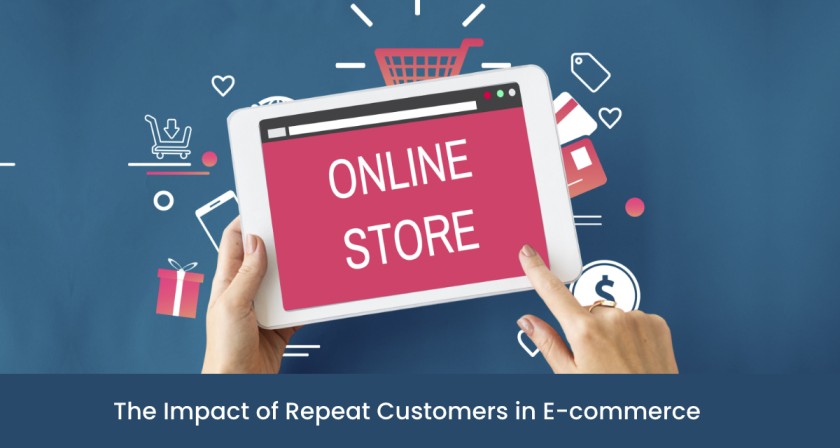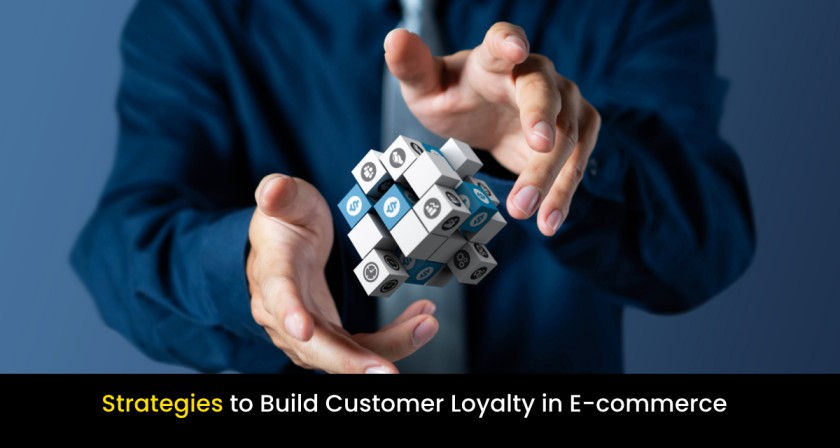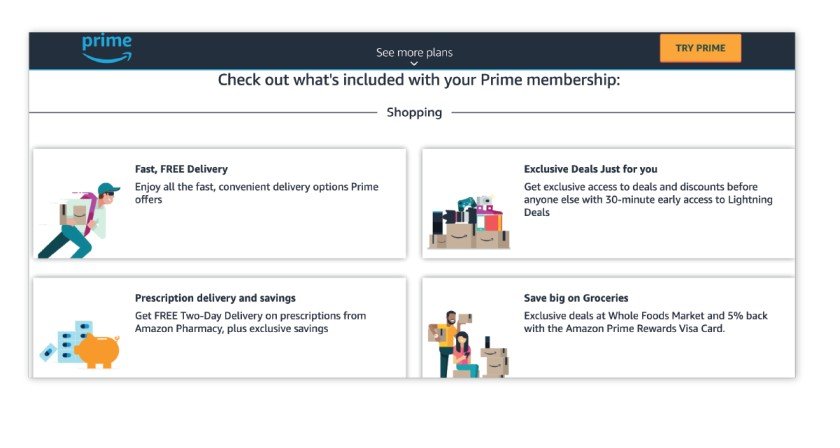In the highly competitive world of e-commerce, customer loyalty plays a vital role in drivaing sustainable growth and success. One of the best ways to increase your e-commerce profit margins is by maximizing the value of existing customers rather than enduring a constant churn of new customer acquisition and loss. Focusing on repeat business can help you increase marketing ROI, ensure cash flow throughout the year, and improve your brand’s reputation. Each repeat customer has many times the value of a new customer who has yet to make their first purchase.
One effective way to foster customer loyalty is by implementing a well-designed rewards program with holistic loyalty software. These programs offer various incentives and rewards to customers who repeatedly engage with a brand or make purchases. In this blog, we will explore customer loyalty in e-commerce, the importance of repeat customers in e-commerce, and why a customer loyalty program is crucial for businesses.
What Exactly is Customer Loyalty?
Customer loyalty in general refers to when a customer repeatedly chooses a company’s goods and services over its competitors. When a person is loyal to one company, they aren’t easily swayed by price or availability, and they’d rather pay more to ensure they get the same excellent service and goods they’re used to. Customer loyalty in ecommerce is about keeping and engaging your existing customers, so they will buy in higher quantities, shop more often, or interact with your brand more frequently.
In the world of Ecommerce, the concept of “footfall” doesn’t apply as it does in physical retail. Instead, companies gauge engagement by the number of touchpoints – each interaction with customers is a chance to connect. To increase online sales, businesses should craft customer experience in a way that makes every interaction with the brand memorable, turning simple engagements into memorable moments worth cherishing.
Importance of Customer Loyalty in E-commerce
Think back last time you wanted to shop online. If you frequently order from Amazon, you should consider them again. You’ve had a good experience with them in the past. You feel they are easy to use, offer a variety of options to choose from, their customer service is excellent, free, fast shipping, and the exclusive shopping deals and selection are some of the significant factors. Even if they are slightly more expensive than the competition – you’ll probably head directly to the Amazon website to shop. Amazon invests heavily in developing customer loyalty. They want to make sure their customers continue shopping on their website with them across their entire product line.
With countless options available to consumers, building a loyal customer base becomes crucial for businesses aiming to thrive. Loyal customers generate higher revenues and become advocates for the brand, driving positive word-of-mouth and influencing potential customers.
Exploring the Value of Repeat Customers
Repeat customers are the backbone of any successful e-commerce venture, and their value extends beyond individual transactions, as they contribute to a business’s overall growth and success. By understanding the unique value that loyal customers bring, companies can better appreciate their impact on long-term success.
The Impact of Repeat Customers in E-commerce
A. Customer Lifetime Value and Revenue Growth
Customer lifetime value (CLV) measures the total revenue generated by a customer throughout their relationship with a business. CLV is one of the most essential e-commerce metrics, and it provides a picture of the business’s long-term and financial viability. High CLV indicates product-market fit, brand loyalty, and recurring revenue from existing customers. Loyalty customers contribute and boost customer lifetime value in e-commerce with repeat purchases.
B. Increased Average Order Value (AOV)
Loyal customers tend to spend more per transaction compared to first-time buyers. As they develop trust in the brand and become familiar with the products or services, they are more willing to invest in higher-priced items or make additional purchases. The higher AOV from repeat customers contributes to improved profitability and revenue growth.
C. Positive Word-of-Mouth and Brand Reputation
Satisfied repeat customers often become brand advocates, spreading positive word-of-mouth recommendations to friends, family, and colleagues. Their endorsement carries significant weight and credibility, as it is based on their first-hand experiences with the business. Positive word-of-mouth contributes to brand visibility, attracts new customers, and helps build a strong reputation in the market.
D. Reduced Customer Acquisition Costs
Reduced customer acquisition costs in e-commerce occur when businesses prioritize customer loyalty. By cultivating a loyal customer base, companies can minimize expenses associated with marketing and advertising campaigns to acquire new customers. Loyal customers already know the brand and require less onboarding, resulting in reduced time and effort investment. They also have higher conversion rates and are more likely to refer others, leading to cost-effective word-of-mouth marketing. Overall, by focusing on customer loyalty, businesses can optimize their resources and allocate them more efficiently, resulting in reduced customer acquisition costs
Strategies to Build Customer Loyalty in Ecommerce
Building customer loyalty in ecommerce requires a strategic approach focused on creating exceptional experiences and fostering solid relationships. Here are some effective strategies to develop and maintain customer loyalty in the e-commerce space:
1. Personalized Experiences and Recommendations
Tailoring experiences based on customer preferences and behavior is crucial. Utilize customer data to provide personalized product recommendations based on browsing history, purchase patterns, and similar customer profiles. Implement recommendation algorithms to display relevant products on the website, in email campaigns, or during checkout. Personalized recommendations enhance the customer experience and increase the likelihood of repeat purchases.
2. Seamless Shopping Journey
Make the customer journey as smooth and effortless as possible. Optimize website navigation, ensure fast page loading speeds, and simplify checkout. Eliminate friction points, such as complicated forms or excessive steps, that discourage customers from completing their purchases. A seamless and user-friendly shopping experience enhances customer satisfaction and encourages loyalty.
3. Effective Customer Communication
Establish clear and effective communication channels to build trust and maintain engagement. Be responsive to customer inquiries and provide timely and helpful support. To cater to customer preferences, use multiple communication channels, such as live chat, email, and social media. Regularly engage with customers through personalized follow-up emails, order updates, and relevant content to keep them informed and connected.
4. Loyalty/Rewards Programs
Implement an e-commerce loyalty program that rewards customers for their repeat purchases and engagement. Offer incentives such as exclusive discounts, free shipping, early access to new products, or loyalty points that can be redeemed for future purchases. Encourage customers to join your loyalty program and make them feel valued for their continued support.

E-commerce loyalty programs thrive on personalized experiences, where rewards align with individual preferences and purchase patterns. Many businesses introduce tiered rewards, like Silver to Platinum levels, enhancing benefits with each ascent. Surprising loyalists on special occasions, offering exclusive event access, and rewarding beyond purchases—like reviews or referrals—are game-changers. Seamless redemption processes, transparent communications about point values, and systems that value feedback solidify trust. But above all, the heart of a loyalty program is making customers feel valued, with rewards being the medium to convey appreciation.
The Success of the Amazon Loyalty Program
One key example illustrating the importance of customer loyalty programs in ecommerce is Amazon Prime and its impact on customer loyalty and retention.
The success of Amazon Prime can be attributed to its ability to provide a combination of convenience, value, and an enhanced customer experience. By consistently delivering on its promise of fast shipping and continuously expanding its benefits, Amazon Prime has solidified its position as one of the most successful loyalty programs in the e-commerce industry, driving customer loyalty, engagement, and long-term revenue growth.
Additionally, many brands in various industries are transitioning to holistic loyalty programs, recognizing that traditional loyalty programs must fully maximize their potential. The exceptional success of Amazon Prime lies in its comprehensive approach to customer loyalty. Prime members spend twice as much as non-Prime members and are at the core of Amazon’s remarkable growth.
- Approximately 80% of Prime members exclusively subscribe to Amazon Prime, indicating that they do not participate in other retail membership programs.
- The average Prime member spends about $1,400 a year, while a non-Prime member spends only $600 a year.
- Prime members make an average of 26 purchases annually on Amazon, while non-Prime customers make approximately 14 purchases annually.
- Prime members spend $55 per visit vs. an average of $42 for non-Prime customers.
What Made Amazon Prime So Successful?
The unparalleled success of Amazon Prime can be attributed to its ability to meet customers’ needs and surpass their expectations effectively. Amazon Prime gained widespread popularity by focusing on addressing the significant pain point of shipping costs.
The program’s success stems from its ability to prioritize the desired benefits of its top customers while continuously expanding and enhancing its offerings over time. Amazon’s relentless investment in its customers, rather than solely focusing on the product, has been a critical driver of the remarkable success of Amazon Prime.
Conclusion:
Repeat customers contribute significantly to revenue growth, reduce acquisition costs, and help build a positive brand reputation through word-of-mouth. Businesses can reap numerous benefits by prioritizing customer loyalty, including increased retention, higher average order value, and valuable customer insights.
To build and enhance customer loyalty in e-commerce, it is essential to focus on strategies such as personalized experiences, a streamlined shopping journey, and implementing holistic rewards programs. Leveraging data analytics for loyalty programs is crucial for understanding customer preferences and behavior, allowing for personalized and targeted marketing efforts.
In conclusion, customer loyalty in ecommerce should be a core focus for businesses. By continuously improving and investing in building strong customer relationships, companies can drive growth, differentiate themselves from competitors, and thrive in an ever-evolving digital landscape. Prioritizing customer loyalty is not only a strategic move but also reinforces the value and significance of repeat customers.
Key Takeaways & Actionable Steps
In the dynamic e-commerce arena, nurturing customer loyalty is the linchpin for sustained growth. Repeat customers not only bolster lifetime value but also amplify word-of-mouth and minimize acquisition costs. Amazon Prime exemplifies this, reflecting the potency of holistic loyalty programs. To harness such benefits:
- Dive into customer data for personalized product suggestions.
- Periodically refine your online shopping experience, ensuring swift navigation and checkout.
- Maintain open lines of communication, using platforms like live chat, email, and social media.
- Design loyalty programs that offer unique incentives, from exclusive discounts to early product access.
- And crucially, always value and act on customer feedback.
By embracing these strategies, businesses can fortify customer loyalty, setting the stage for long-term success in e-commerce.
Discover the Power of Zinrelo’s Loyalty Platform!
Learn how Zinrelo’s ecommerce loyalty platform can transform your business.





